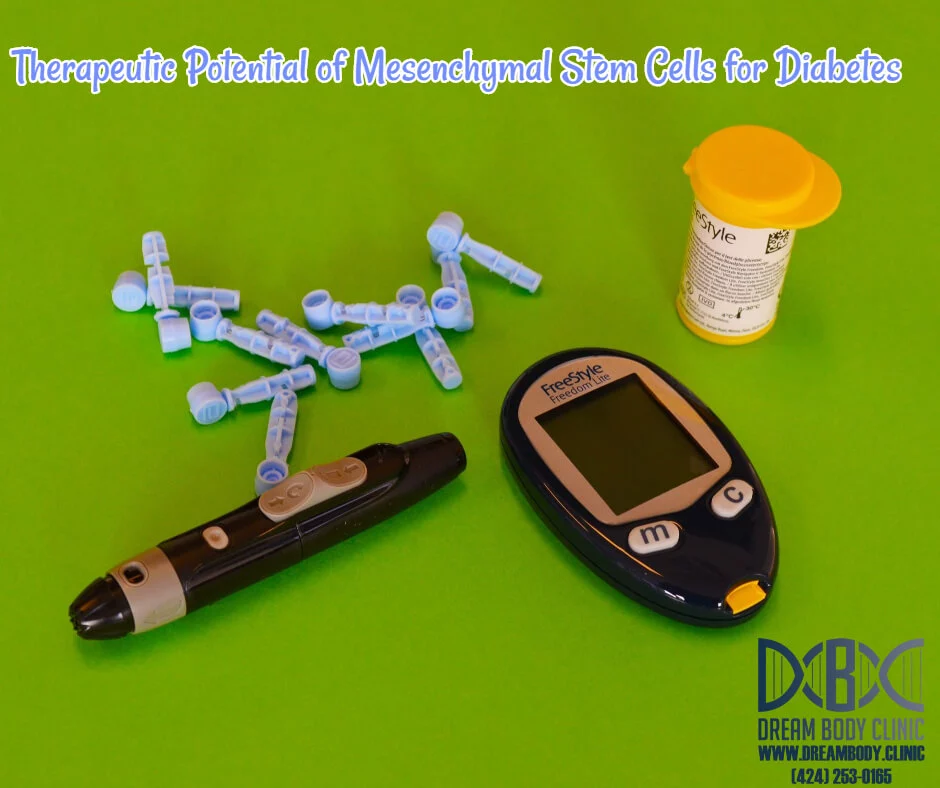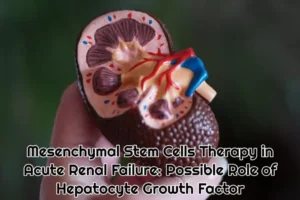Therapeutic Potential of Mesenchymal Stem Cells for Diabetes is discussed in the published study below. At Dream Body Clinic we have been treating Type 2 Diabetes with great success using an IV of 300 Million Mesenchymal Stem Cells. See our Type 2 Diabetes Stem Cell Treatment Here.
ABSTRACT
Mesenchymal stem cells (MSCs) are self-renewing multipotent cells that have the capacity to
secrete multiple biologic factors that can restore and repair injured tissues. Preclinical and
clinical evidence have substantiated the therapeutic benefit of MSCs in various medical
conditions. Currently, MSCs are the most commonly used cell-based therapy in clinical trials
because of their regenerative effects, ease of isolation, and low immunogenicity. Experimental
and clinical studies have provided promising results using MSCs to treat diabetes. This review
will summarize the role of MSCs on tissue repair, provide emerging strategies to improve MSC
function, and describe how these processes translate to clinical treatments for diabetes.
INTRODUCTION
Advances in stem cell biology have seen the rise of an exciting new field of research known as
regenerative medicine. Regenerative medicine is a multidisciplinary branch of translational
research that aims at repairing injured tissues to restore normal cellular function. To date, the cell
population most commonly studied in clinical trials includes mesenchymal stem/stromal cells
(MSCs). The therapeutic potential of MSCs is based on their ease of isolation, ability to
differentiate into multiple cell types, low immunogenicity, and most importantly their release of
biologic factors shown to alleviate impaired tissues.
MSCs are multipotent cells, of mesodermal origin, that characteristically: a) adhere to plastic and
self-renew, b) express specific surface antigen markers (CD73, CD90, CD105), and c) at a
minimum, have the ability to differentiate into osteocytes, adipocytes, or chondrocytes (Dominici
et al. 2006). MSCs are widely distributed in the body and can therefore be isolated from multiple
sources, including the bone marrow, heart, bodily fluids, skin, and perinatal tissues. MSCs react
to microenvironmental changes (pH, oxygen, stress) by releasing immune modulatory and
trophic factors known to regenerate injured cells and tissues (Caplan & Correa 2011).
Experimental findings in neurodegenerative and cardiovascular disease have supported the rapid
growth of cell-based research (Murphy et al. 2013). To date, 695 US clinical trials are testing the
utility of MSCs as therapeutic agents for an array of medical conditions.
The aim of this review is to provide a concise summary of the existing literature evaluating MSCs
as novel therapeutic agents for diabetes mellitus. Additionally, this focused review will discuss
recent methods used to bolster stem cell performance and how these discoveries are translating
into endocrine research.


